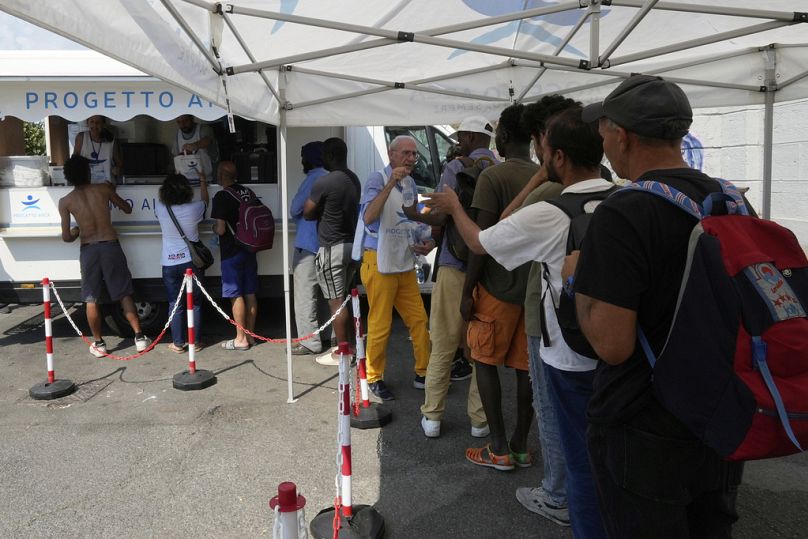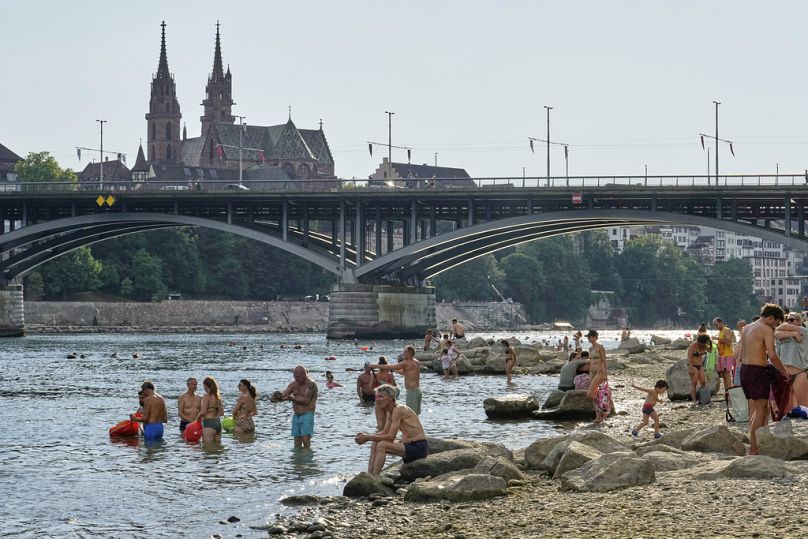An ongoing heatwave has broken records and sparked alarm across Europe, as temperatures reach above 40 degrees Celsius in parts of the continent.
As a deadly heatwave sweeps Europe, extreme weather sparked wildfires in Turkey which took the life of an 81-year-old man.
 ADVERTISEMENT
ADVERTISEMENT
 ADVERTISEMENT
ADVERTISEMENT
Hundreds of firefighters, supported by aircraft and helicopters, were deployed on Thursday to extinguish a wildfire blazing in the Turkish coastal town of Cesme.
An 81-year-old-man died from smoke inhalation, according to the province’s governor, while a total of 37 villagers were safely evacuated by first responders.
Turkey has in the past week battled hundreds of fires across the country that were fuelled by fierce winds, scorching heat and low humidity. The fires, most of which have now been extinguished, led to the evacuation of tens of thousands of people.
Italy
According to experts, the most extreme heat is expected in Italy and Southern Europe on Friday.
Italy’s Health Ministry has said 17 of the country’s 27 major cities were experiencing a heat wave. Earlier in the week, at least two people died.
Bolzano, in northern Italy, is facing increasingly frequent heatwaves with temperatures reaching around 37 degrees Celsius.
The city’s location in a valley basis, combined with extensive asphalt and limited green space, has intensified the heat. Conditions are even more severe in the industrial zone, where hot southern winds push additional heat into the area.
Authorities say expanding urban greenery is key to lowering temperatures. Shaded areas can be up to five degrees cooler. Bolzano currently has around 13,000 trees and plants 250 more each year under a municipal greening plan. However, climate experts say thousands more are needed to have a meaningful cooling effect.
Urban infrastructure, such as underground glass fibre cables and district heating systems, limits where trees can be planted. In denser parts of the city, officials say artificial shading, such as umbrellas, could help mitigate heat exposure.
Austria
Extreme temperatures continued to grip Austria on Thursday, with highs reaching up to 38 degrees Celsius. In Salzburg, tourists sought relief from the heat in the city centre, where sprinkler systems offered brief cooling in some areas.
The heatwave has highlighted shortcomings in urban planning, particularly in densely built-up areas with little greenery. Large concrete surfaces and a lack of shade have made parts of the city especially difficult to endure.
The number of hot days in Salzburg- defined as those exceeding 30°C - has doubled in recent decades, rising from around 10 to nearly 20 days per year.
The heat and drought has also increased the risk of wildfires. In Upper Austria, several fires have been reported.
Authorities are taking preventative measures like monitoring moisture levels in hay and straw bales. They’re also checking agricultural machinery and clearing it of dry debris to reduce the risk of ignition.
Switzerland
In the Swiss canton of Aargau, the Beznau nuclear power plant was partially disconnected from the electricity grid due to the ongoing heatwaves. One reactor was fully shut down while the second operated at 50% capacity.
The plant’s operator Axpo said the reason for the shutdown was the high water temperature of the River Aare.
By shutting down the plant, they hope to protect flora and fauna in the river from excessive pollution. Discharging its heated water into the already over-heated nearby river would have endangered wildlife.
According to a 2024 report by the EU's Copernicus Climate Change Service, Europe is the continent with the fastest-rising temperatures on Earth, having warmed twice as fast as the global average since the 1980s.












